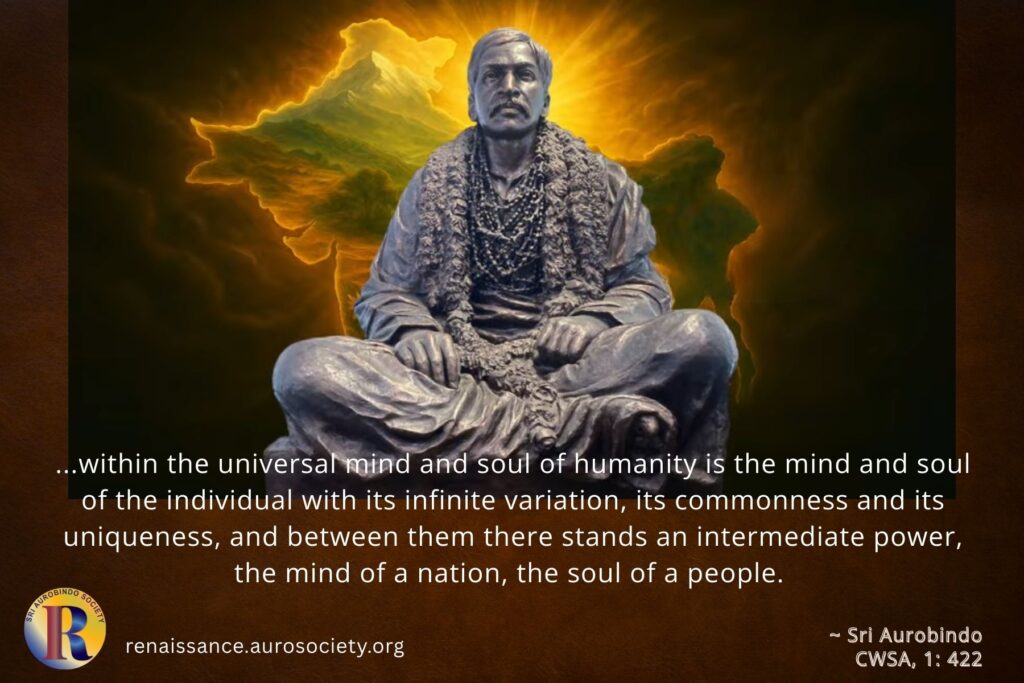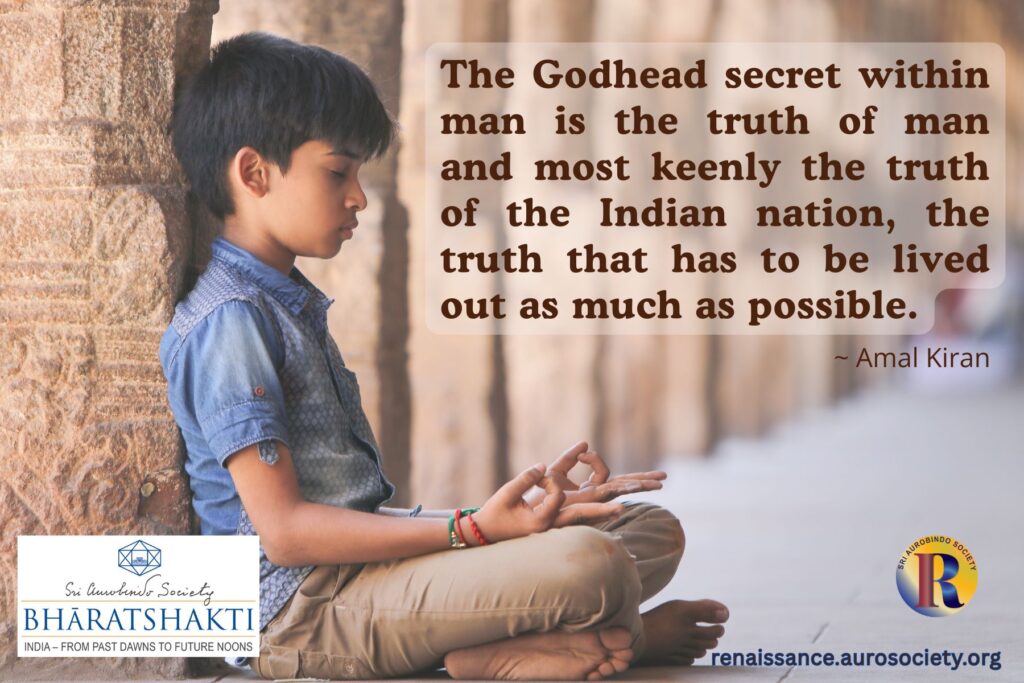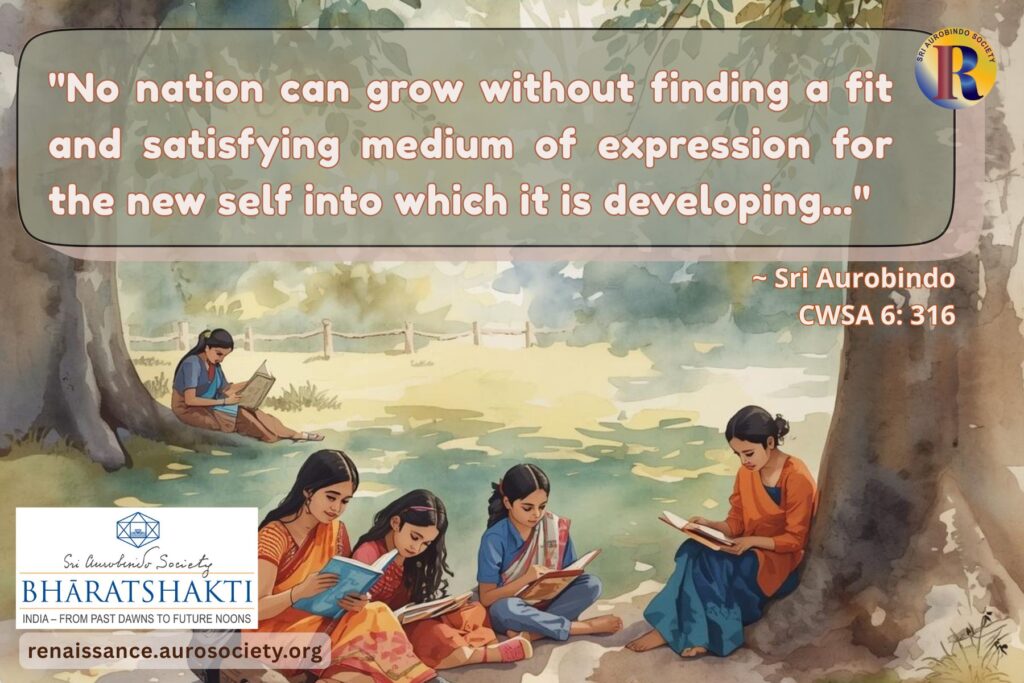Volume II, Issue 3
Author: K. D. Sethna (Amal Kiran)
Continued from Part 2
Our Independence and Sri Aurobindo
The way to fulfilment is by stressing neither liberty nor equality but fraternity. Given genuine fraternity, liberty and equality follow. More than any other country India is equipped for building the democratic order on a fraternal basis. For, above all countries it is she who has lived for the only fraternal basis which can last and carry a superstructure of authentic freedom and justice: God-realisation.
And as soon as we speak of God-realisation being India’s master quest no less than being the one means of fulfilling the ideals of democracy we come to be on the look-out for a yet profounder reason for our national soul’s predilection for August 15.
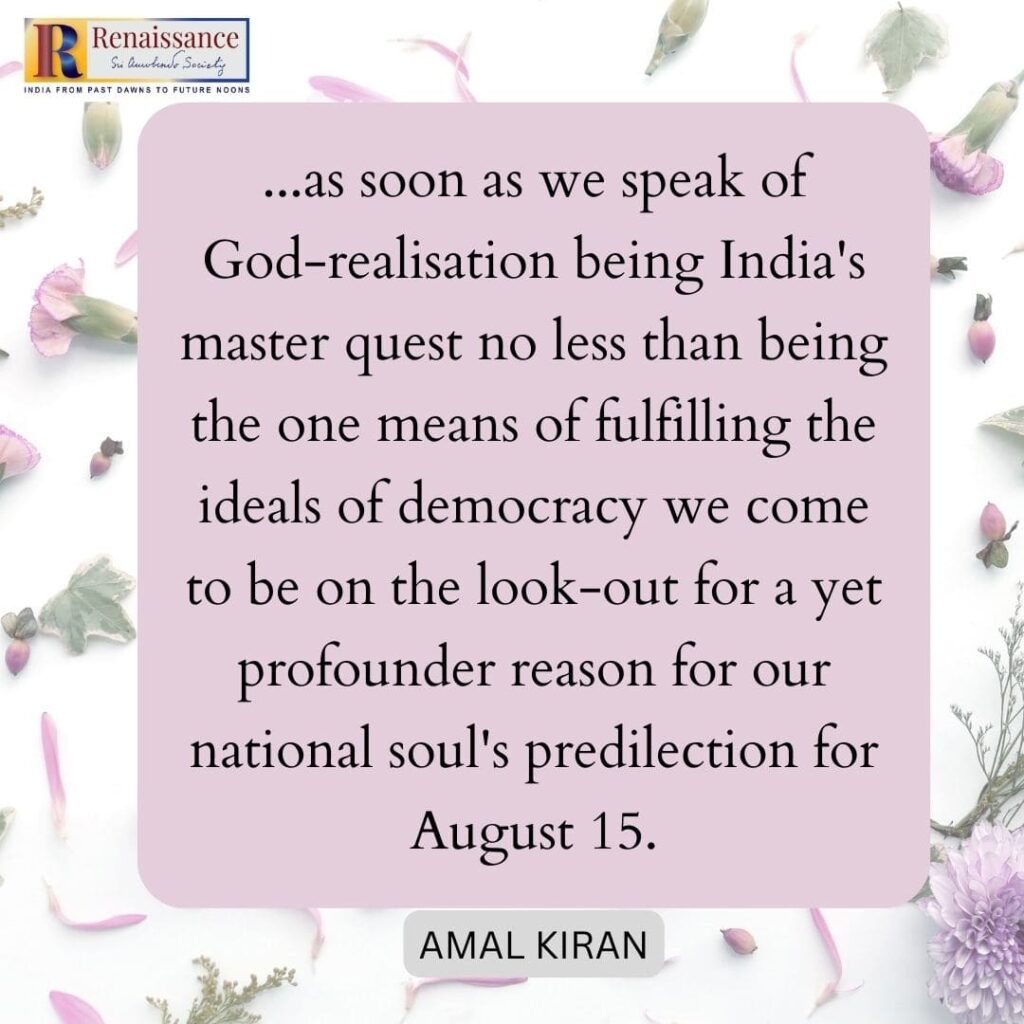
What we expect to find is the identity of this date with some occasion closely linked to not only our own struggle for independence and for the triumph of the democratic ideals but also the sense of a presiding Goddess with which our nationalism is so powerfully charged and the direct concrete experience of the one yet multiple Divine Reality that has been the lodestar of the Indian consciousness down the centuries.
If we could discover the identity we should know with redoubled certitude that the date of our Independence Day was due to no accident nor dictated by mere convenience but decided by the national soul. And by exploring the precise historical circumstances of the identity we should be able to learn where to seek correct guidance for the future and how to rise to the height of our destiny.
There is no traditional festival from the past on this date. With none of our political leaders in the forefront at present is it particularly connected. But on August 15 falls the birthday of Sri Aurobindo.
Our Cabinet had not noticed it at all when they fixed the Day of Independence. Though to celebrate it people in their hundreds from all parts of India had been gathering together in Pondicherry for several years before the end of British rule, there was no thought in the minds of our Ministers to give it importance by making the Independence Day coincide with it. This is sad proof of the imbalance of values in contemporary India, the dearth of vision in our leaders.
All the more remarkable, therefore, is their striking upon just this date for the happiest and most meaningful political event for us in modern times. And all the more clinching as well as heartening is the evidence that the national soul, the great Mother with whose dear and majestic name we launched the struggle for freedom, was not slumbering but from the forgotten depths of our being was still pointing a luminous finger. For Sri Aurobindo answers to all the expectations we have enumerated: his life singles him out for association with the coming into its own by a country like India.
It was as a leader of Nationalism that Sri Aurobindo first caught the public eye.
Although educated in England and bringing a rich assimilation of all European culture, he stood out as an incarnation of the true Indian genius. In him the culture of this hoary land sprang vibrantly to life.
And when he plunged into the political arena at the time of Bengal’s partition by Lord Curzon and took up the leadership of the fight against foreign rule, he brought something more than patriotic vehemence, something more than democratic idealism. He came burning with the consciousness of India as the mighty Mother—the occult insight into the superhuman being that is the national soul was like a fire in his breast and every word he spoke carried the same incandescence home to his hearers.
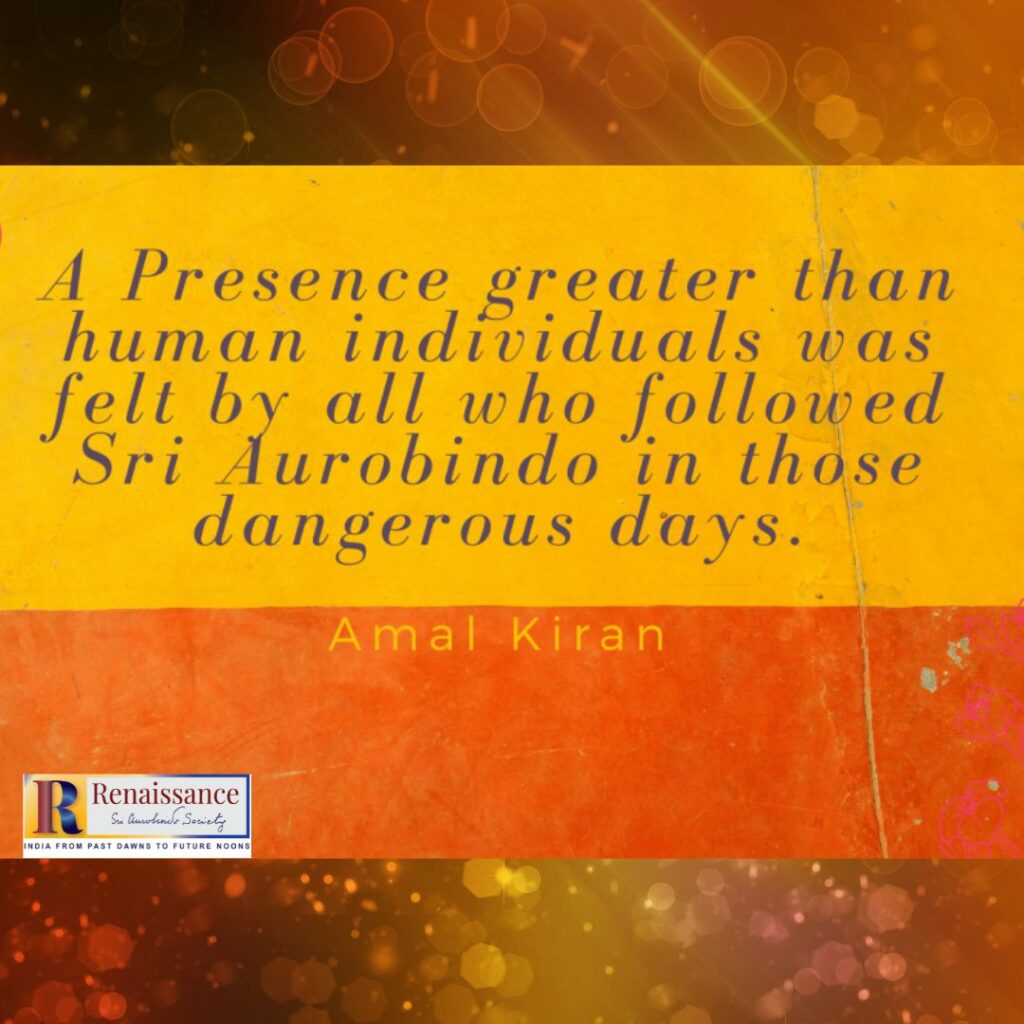
The old milk-and-water psychology of prayer, protest and petition he transformed almost overnight into the dynamic of a will intoxicated with the vast wine of the national soul’s super-vitality. A Presence greater than human individuals was felt by all who followed Sri Aurobindo in those dangerous days.
And it was because this Presence was made a reality in the land that the Swaraj movement took on the aspect of Fate: the Shakti who had sustained Indian culture through millenniums and endowed it with a living continuity from a past beyond that of Egypt or Greece or Rome to a present in which Memphis is but a wonderful memory, Periclean Athens no more than a mass of magnificent ruins and the Rome of the Caesars only the windswept and grass-covered Coliseum—the perpetual Shakti tore the veil between the inner and the outer and with her fiat gave the struggle for independence an inevitability of success.
Under Her inspiration Sri Aurobindo, in eight effective years, laid down the broad lines of the whole future of Swarajism, lines from which, in spite of all changes of personnel and programme, India never essentially deviated.
Nor is this all that Sri Aurobindo the politician did.
Through the quick-shifting drama of his political career—the countless constructive ventures in journalism, the innumerable practical acts of patriotic policy, the agitations, the arrests, the house-searchings, the legal attacks and counter-attacks, the sensational climax in the year-long detention as under-trial prisoner in Alipore Jail and the subsequent court-scenes with Eardley Norton the most brilliant criminal lawyer in India as Crown Prosecutor, Chittaranjan Das shielding Sri Aurobindo by a case for defence worked out through feverish months at the cost of his own health and the loss of a lucrative practice, Mr. Beachcroft sitting in judgment over a man who had been with him at Cambridge and had beaten him there to second place in Greek and Latin—through all the dramatic vicissitudes of those eight years ran not only the occult insight of genuine patriotism but also the mystical vision of the aspiring Yogi.
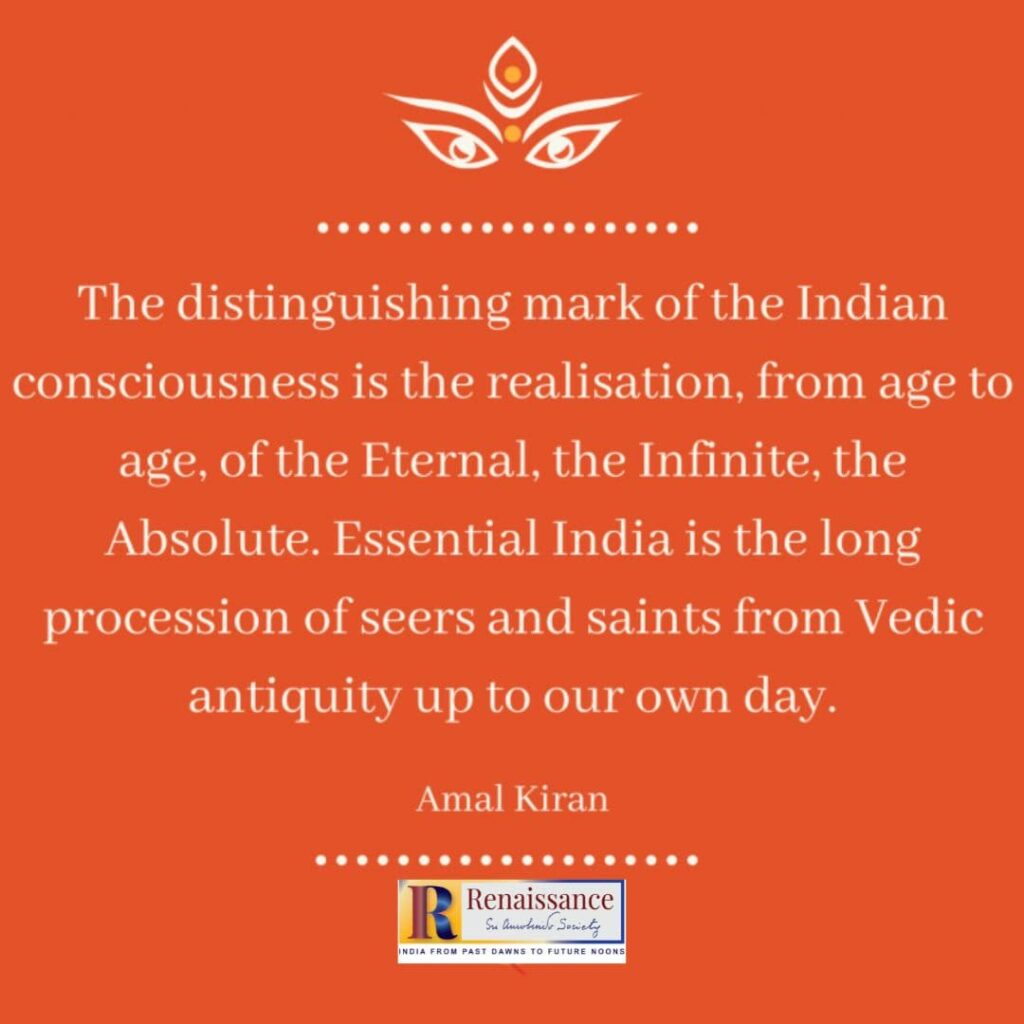
Sri Aurobindo brought to his work the full reality of the Being hailed by Bankim Chandra in Bande Mataram. The national soul felt by historical India is not merely the presiding genius of the human collectivity in the land bounded by the Himalayas and by rivers and seas.
The distinguishing mark of the Indian consciousness is the realisation, from age to age, of the Eternal, the Infinite, the Absolute. Essential India is the long procession of seers and saints from Vedic antiquity up to our own day. Hence the national soul, the Mother of these myriad knowers and arid lovers of God, must be herself a face and form of the Divine and wrapped in the atmosphere of the Supreme Being must she be envisaged and invoked.
That was the message of Bankim Chandra’s song and of Sri Aurobindo the politician, that was the core of the Aurobindonian Nationalism which made this song the throbbing life-blood of Bengal and, through Bengal, the entire sub-continent.
None, in the political field, before or after Sri Aurobindo can be put on a par with him in fusion of spiritual energy with patriotic fervour. Is it not, therefore, in the fitness of things that the Independence Day of a country whose chief glory has been God-realisation should coincide, in spite of all the predominantly political character of this day, with the occasion of Sri Aurobindo’s birth?
And would it not be purblind on our part to miss a signal so pregnant with meaning and fail to see our future bound up with his presence in our midst—our future of true self-growth political as well as cultural and of leadership among the nations on the path of human evolution towards Godhead?
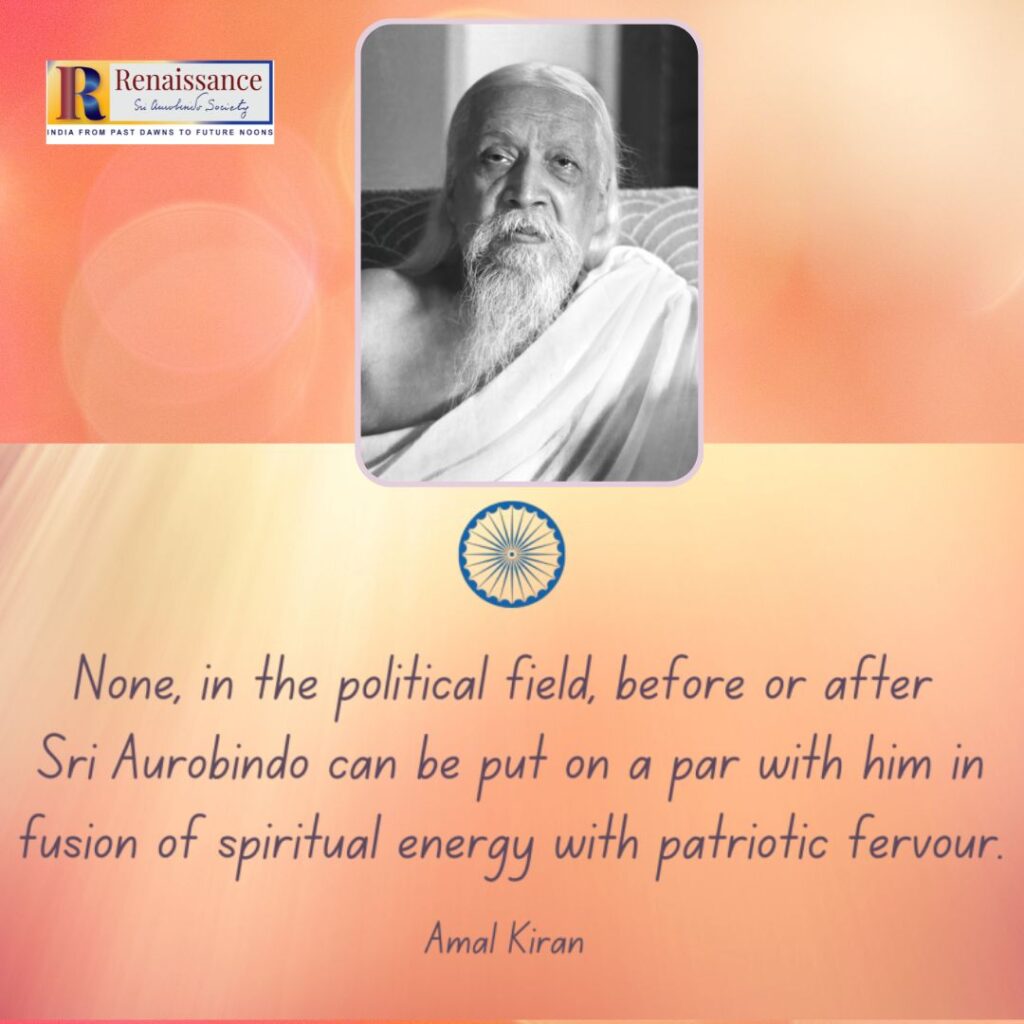
Concluded
Read earlier parts: Part 1 and Part 2
Don’t miss: Sri Aurobindo and August 15
Also see: Nation and Nationalism – Sri Aurobindo in Bande Mataram
~ Cover image: original image by Margaret Phanes; cover design by Rishabh Sharma
~ Other design: Beloo Mehra

